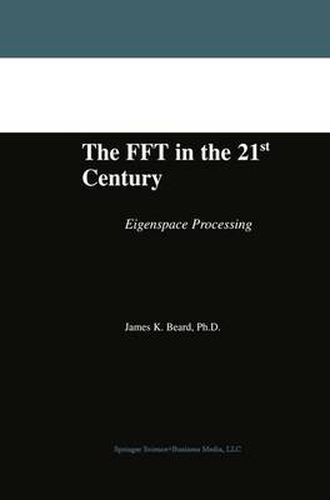Readings Newsletter
Become a Readings Member to make your shopping experience even easier.
Sign in or sign up for free!
You’re not far away from qualifying for FREE standard shipping within Australia
You’ve qualified for FREE standard shipping within Australia
The cart is loading…






This title is printed to order. This book may have been self-published. If so, we cannot guarantee the quality of the content. In the main most books will have gone through the editing process however some may not. We therefore suggest that you be aware of this before ordering this book. If in doubt check either the author or publisher’s details as we are unable to accept any returns unless they are faulty. Please contact us if you have any questions.
This short reference provides four in-depth reference tutorials on the FFT: Fourier transforms, including Fourier series and discrete Fourier transforms, the Cooley-Tukey algorithm, the bit-reverse index reordering problem and two of its solutions, and spectral windows. Each area has problems of various scopes and difficulties designed to provoke thought and curiosity, and to illuminate the topic in ways not always presented in the text. The scope of the material is specifically intended to apply to applications for the foreseeable future as well as provide a reference for applications that have not yet emerged, such as 3-D processing of multiple parallel data streams for true time-delay broadband beamforming and ambiguity resolution using sparse arrays. This scope is supported through a unified treatment of one, two, and three-dimensional FFTs with seamless extension to higher dimensionality. The section on spectral window weighting is alone worth the book, as it provides a unified in-depth tutorial, including many plots, of all commonly used one-dimensional and two-dimensional spectral weightings, with extensions to higher dimensionality. Several new high-performance spectral weights are introduced, including a monopulse weighting for planar arrays with good antenna efficiency and excellent sidelobe control that is based on Chebychev polynomials of the second kind, and a five-cosine extension to the Blackman-Harris window with 118 dB performance. This unified treatment covers the theory, algorithm, and signal processing trade space in areas where the FFT is used for the present and for many years into the future.
$9.00 standard shipping within Australia
FREE standard shipping within Australia for orders over $100.00
Express & International shipping calculated at checkout
This title is printed to order. This book may have been self-published. If so, we cannot guarantee the quality of the content. In the main most books will have gone through the editing process however some may not. We therefore suggest that you be aware of this before ordering this book. If in doubt check either the author or publisher’s details as we are unable to accept any returns unless they are faulty. Please contact us if you have any questions.
This short reference provides four in-depth reference tutorials on the FFT: Fourier transforms, including Fourier series and discrete Fourier transforms, the Cooley-Tukey algorithm, the bit-reverse index reordering problem and two of its solutions, and spectral windows. Each area has problems of various scopes and difficulties designed to provoke thought and curiosity, and to illuminate the topic in ways not always presented in the text. The scope of the material is specifically intended to apply to applications for the foreseeable future as well as provide a reference for applications that have not yet emerged, such as 3-D processing of multiple parallel data streams for true time-delay broadband beamforming and ambiguity resolution using sparse arrays. This scope is supported through a unified treatment of one, two, and three-dimensional FFTs with seamless extension to higher dimensionality. The section on spectral window weighting is alone worth the book, as it provides a unified in-depth tutorial, including many plots, of all commonly used one-dimensional and two-dimensional spectral weightings, with extensions to higher dimensionality. Several new high-performance spectral weights are introduced, including a monopulse weighting for planar arrays with good antenna efficiency and excellent sidelobe control that is based on Chebychev polynomials of the second kind, and a five-cosine extension to the Blackman-Harris window with 118 dB performance. This unified treatment covers the theory, algorithm, and signal processing trade space in areas where the FFT is used for the present and for many years into the future.